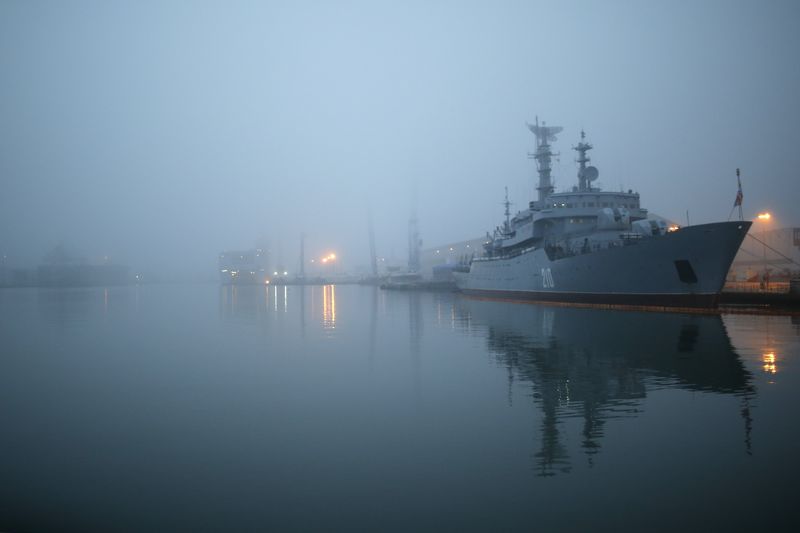By Karen Lema
MANILA, Nov 25 (Reuters) - Tensions in the South China Sea
will increase due to a U.S.-China rivalry that could be kept in
check, if only Southeast Asian countries took a united stand to
influence the status quo, a top Philippine security official
said on Wednesday.
The Association of Southeast Asian Nations (ASEAN) was
caught up in the battle for regional influence but it could do
more to ensure stability and should take a common approach,
Defence Secretary Delfin Lorenzana told a security forum.
"Where is the ASEAN in this superpower rivalry? Despite its
avowed ASEAN centrality, it is anything but," Lorenzana said.
"ASEAN would exert considerable influence on issues and
events in the South China Sea if only it could act as one."
Lorenzana's remarks are unusually blunt for a minister from
within the 10-member bloc, which rarely speaks up as a group
against militarisation or perceived acts of aggression, with
some states worried about angering Beijing or Washington.
The Philippines, Malaysia, Brunei and Vietnam have
overlapping claims with China and all but Brunei have been
involved in standoffs this year with Chinese vessels.
China says it has historical sovereignty over nine-tenths of
the South China Sea. It does not recognise a 2016 international
arbitral ruling that invalidated those claims.
Lorenzana said the issue was front and centre during
discussions since May with counterparts in Japan, China,
Australia, France and the United States.
"What do this tell us? That the South China Sea is important
to a lot of nations," he said.
"That the tension in the South China Sea will continue to
rise as China will continue to accuse the U.S. and other nations
of provocation and destabilisation ... that the West is trying
to contain the rise of China."
China has stepped up its coastguard presence and military
drills this year, including near islands also claimed by
Vietnam, while the United States has deployed warships to
demonstrate freedom of navigation. They accuse each other of
deliberate provocations.
Lorenzana said Southeast Asia worries the risk of armed
conflict is rising.
U.S. ally the Philippines, he said, "will be involved
whether she likes it or not."
- English (USA)
- English (UK)
- English (India)
- English (Canada)
- English (Australia)
- English (South Africa)
- English (Nigeria)
- Deutsch
- Español (España)
- Español (México)
- Français
- Italiano
- Nederlands
- Português (Portugal)
- Polski
- Português (Brasil)
- Русский
- Türkçe
- العربية
- Ελληνικά
- Svenska
- Suomi
- עברית
- 日本語
- 한국어
- 简体中文
- 繁體中文
- Bahasa Indonesia
- Bahasa Melayu
- ไทย
- Tiếng Việt
- हिंदी
Unified ASEAN can avert South China Sea conflict - Philippine minister
Published 11/25/2020, 07:24 PM
Updated 11/25/2020, 07:30 PM
Unified ASEAN can avert South China Sea conflict - Philippine minister

Latest comments
Install Our App
Risk Disclosure: Trading in financial instruments and/or cryptocurrencies involves high risks including the risk of losing some, or all, of your investment amount, and may not be suitable for all investors. Prices of cryptocurrencies are extremely volatile and may be affected by external factors such as financial, regulatory or political events. Trading on margin increases the financial risks.
Before deciding to trade in financial instrument or cryptocurrencies you should be fully informed of the risks and costs associated with trading the financial markets, carefully consider your investment objectives, level of experience, and risk appetite, and seek professional advice where needed.
Fusion Media would like to remind you that the data contained in this website is not necessarily real-time nor accurate. The data and prices on the website are not necessarily provided by any market or exchange, but may be provided by market makers, and so prices may not be accurate and may differ from the actual price at any given market, meaning prices are indicative and not appropriate for trading purposes. Fusion Media and any provider of the data contained in this website will not accept liability for any loss or damage as a result of your trading, or your reliance on the information contained within this website.
It is prohibited to use, store, reproduce, display, modify, transmit or distribute the data contained in this website without the explicit prior written permission of Fusion Media and/or the data provider. All intellectual property rights are reserved by the providers and/or the exchange providing the data contained in this website.
Fusion Media may be compensated by the advertisers that appear on the website, based on your interaction with the advertisements or advertisers.
Before deciding to trade in financial instrument or cryptocurrencies you should be fully informed of the risks and costs associated with trading the financial markets, carefully consider your investment objectives, level of experience, and risk appetite, and seek professional advice where needed.
Fusion Media would like to remind you that the data contained in this website is not necessarily real-time nor accurate. The data and prices on the website are not necessarily provided by any market or exchange, but may be provided by market makers, and so prices may not be accurate and may differ from the actual price at any given market, meaning prices are indicative and not appropriate for trading purposes. Fusion Media and any provider of the data contained in this website will not accept liability for any loss or damage as a result of your trading, or your reliance on the information contained within this website.
It is prohibited to use, store, reproduce, display, modify, transmit or distribute the data contained in this website without the explicit prior written permission of Fusion Media and/or the data provider. All intellectual property rights are reserved by the providers and/or the exchange providing the data contained in this website.
Fusion Media may be compensated by the advertisers that appear on the website, based on your interaction with the advertisements or advertisers.
© 2007-2024 - Fusion Media Limited. All Rights Reserved.